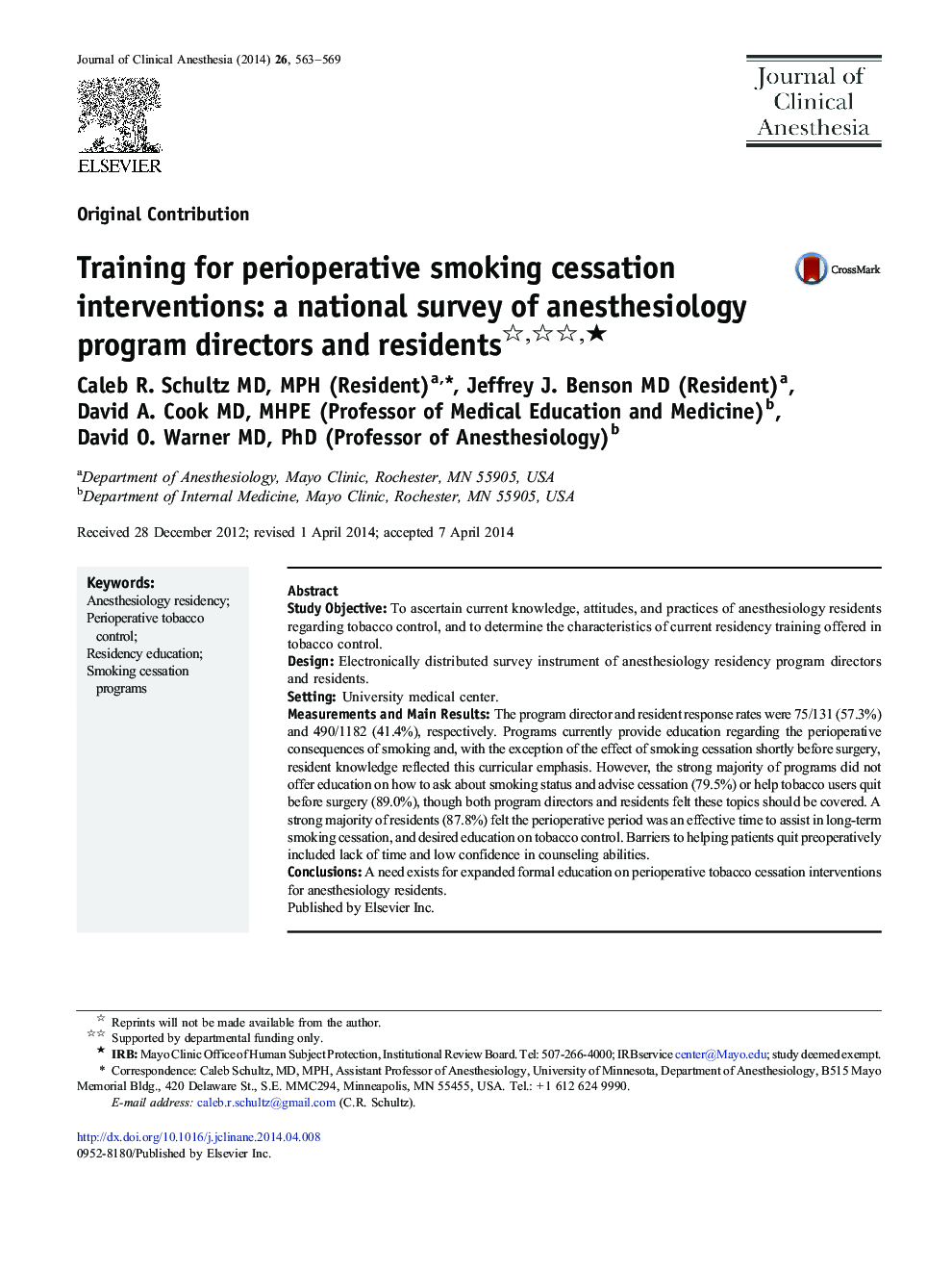| Article ID | Journal | Published Year | Pages | File Type |
|---|---|---|---|---|
| 2762284 | Journal of Clinical Anesthesia | 2014 | 7 Pages |
Study ObjectiveTo ascertain current knowledge, attitudes, and practices of anesthesiology residents regarding tobacco control, and to determine the characteristics of current residency training offered in tobacco control.DesignElectronically distributed survey instrument of anesthesiology residency program directors and residents.SettingUniversity medical center.Measurements and Main ResultsThe program director and resident response rates were 75/131 (57.3%) and 490/1182 (41.4%), respectively. Programs currently provide education regarding the perioperative consequences of smoking and, with the exception of the effect of smoking cessation shortly before surgery, resident knowledge reflected this curricular emphasis. However, the strong majority of programs did not offer education on how to ask about smoking status and advise cessation (79.5%) or help tobacco users quit before surgery (89.0%), though both program directors and residents felt these topics should be covered. A strong majority of residents (87.8%) felt the perioperative period was an effective time to assist in long-term smoking cessation, and desired education on tobacco control. Barriers to helping patients quit preoperatively included lack of time and low confidence in counseling abilities.ConclusionsA need exists for expanded formal education on perioperative tobacco cessation interventions for anesthesiology residents.
